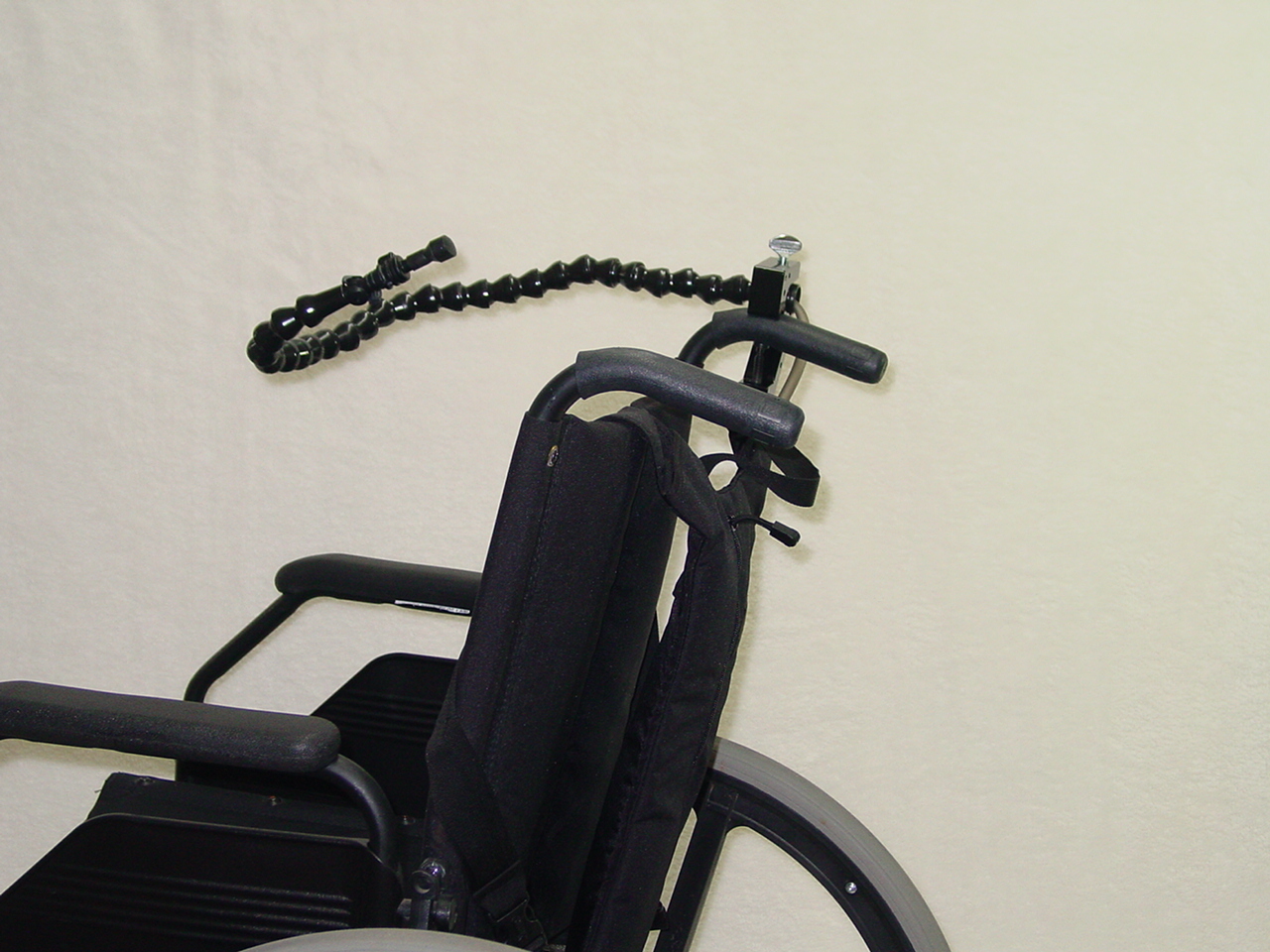I love the design of the lift and how it can work
anywhere and fit anywhere. Traditional lifts are so large they can be
difficult to use in a residential setting. I don't like the cranks on
either side of the seat though, I think that would be difficult for an
elderly caregiver and I think taking it apart may be difficult as well,
but I love the idea. I wonder if its available stateside. Check out this video.
Has anyone seen or used anything like this?
Friday, March 30, 2012
Thursday, March 29, 2012
Special Needs: Parenting DD Children: Love Key to Brain Development in Children
Editor's note: Dr. Charles
Raison, CNNhealth's mental health expert, is an associate professor of
psychiatry at the University of Arizona in Tucson.
 Ever noticed how scientific opinions swing from one extreme to the other?
Ever noticed how scientific opinions swing from one extreme to the other?Take the importance of mothers in the development of children. In the early days of psychiatry almost every mental illness, from depression to schizophrenia to autism was blamed on bad mothering. Then in the 1960’s and 70’s the discovery of medications that helped these illnesses allowed psychiatry to reframe them as biological conditions, no different from cancer or heart disease. Parents were fully absolved for the mental illnesses of their children, except to the degree that they passed along bad genes that caused chemical imbalances in the brain.
Click here to continue reading.
Monday, March 26, 2012
The New and Improved Hydration Backpack with Drinking Tube Positioning
Because hydration is so important to good health, Mealtime Partners is emphasizing the use of hands-free
drinking systems to facilitate consuming enough liquids for those who
are unable to independently take a drink. In last months Newsletter the
Front Mounted Drinking System was discussed. To continue providing
details about our unique line of drinking products, this month we will
describe the Hydration Backpack with Drinking Tube Positioning.
Even though this product has been available for some time it was
recently updated to include a larger bladder and longer tube positioning
capability. Also, the new system has an on/off valve. These changes
were made to facilitate the drinking system being accessible to a wider
range of users with more diverse positioning and hydration needs. Figure
1 shows the Hydration Backpack with Tube Positioning mounted on a
manual
wheelchair.
 |
||||||||||||
| Figure 1 - The Hydration Backpack with Drinking Tube Positioning Attached to a Wheelchair |
Saturday, March 24, 2012
Special Needs: Cortical Vision Impairment and Education
by Hollen Partington
When
my daughter Leah was two, her ophthalmologist told us that she might
not be able to learn to read at a normal age. He explained to us that
children with nystagmus take longer to learn to read, if they read at
all all, because it is so difficult for them to focus. We hadn’t lost
hope that day, but we gradually began to understand that her life was
going to be forever affected by her plethora of diagnoses.
Leah’s Vision Story
A
27-week preemie, born February 2004 and weighing 2lbs 8oz, Leah
developed post-hemorrhagic hydrocephalus at three weeks old. She was
shunted at that time, and during the next several months went from one
shunt in the right ventricle to another in the left and ultimately a
third shunt in her fourth ventricle.
The
operation on her fourth ventricle proved tricky; it’s a small space at
the base of the brain just above the brain stem and visual cortex. The
neurosurgeon, though fantastic, nicked her optic nerve during the
surgery in July 2004. This forced Leah’s eyes to cross.

Friday, March 23, 2012
DD Special Needs: Role of Primitive Reflexes and Learning Disabilities
Thursday, March 22, 2012
Tax Deductions for Barrier-Free/Universal Design Home Modifications
Tax
deductions for home –modifications, capital expenses incurred if home
improvements are necessary for medical reasons. The following comes from
I.R.S, Pub. 502, medical and dental expenses.
"You can include in medical expenses amounts you pay for special equipment. Installed in a home, or for improvements, if their main purpose is medical care for you, your spouse, or your dependent. The cost of permanent improvements that increase the value of your property may be partly included as a medical expense. The cost of the improvement is reduced by the increase in the value of your property. The difference is a medical expense. If the value of your property is not increased by the improvement, the entire cost is included as a medical expense."
Saturday, March 10, 2012
Complete Guide to Special Needs Toilet Training
Toilet training children with disabilities is challenging, let's face it toilet training children without disabilities is challenging. In many
cases, toilet training children with disabilities is similar to
training other children. It simply requires more patience and some extra
support. In our school we
begin toilet training on a schedule sometimes putting a child on the
potty once per hour until they start getting the idea.
Some kids need the extra feedback of potty alarms. I grew up with a child with Down syndrome in the 70's, her name is Krissy. When Krissy was potty trained, around the age of 5, she had a potty alarm. I would think that for kids with Down syndrome potty alarms would be beneficial because Down syndrome kids have low muscle tone. Typically kids with low muscle tone have reduced tactile sensations and would not be as sensitive to having a wet diaper or pull up.
I feel toilet training a disabled child is of the utmost importance, not only for convenience but also to protect the child. Over 50% of people with disabilities are sexually abused, potty training your child will take away opportunities of sexual abuse.
I found this guide to toilet training
children with disabilities. Here you'll find plenty of articles, strategies and tips for
toilet training children with a variety of special needs. Plus you'll
find resources for trouble shooting many types of potty problems like
smearing poop, fear of the toilet and potty training regression. It's
the most comprehensive guide of toileting resources for special needs
parents and teachers with students who are not potty trained.
Tuesday, March 6, 2012
Understanding and Treating the Cognitive Dysfunction of Down Syndrome and Alzheimer’s Disease
[Source: Science Daily]

Down syndrome (DS) is the most common genetic disorder in live born children arising as a consequence of a chromosomal abnormality. It occurs as a result of having three copies of chromosome 21, instead of the usual two. It causes substantial physical and behavioral abnormalities, including life-long cognitive dysfunction that can range from mild to severe but which further deteriorates as individuals with DS age.
It is not currently possible to effectively treat the cognitive impairments associated with DS. However, these deficits are an increasing focus of research. In this issue of Biological Psychiatry, researchers at Stanford University, led by Dr. Ahmad Salehi, have published a review which highlights potential strategies for the treatment of these cognitive deficits.
Read the Rest of this Article on ScienceDaily.com
Saturday, March 3, 2012
Special Needs: IEP’s According to Dr. Seuss
Posted on March 2, 2012 by Heidi Kay
Thanks to Special Education Advisor.com for passing along this oldie but goodie that circulates the internet at this time of year! Could the Cat in the Hat juggle IEPs like YOU can??

Image Credit: The Cat in the Hat, by Dr. Seuss
IEP’s According to Dr. Seuss – by: Author Unknown
Subscribe to:
Posts (Atom)
